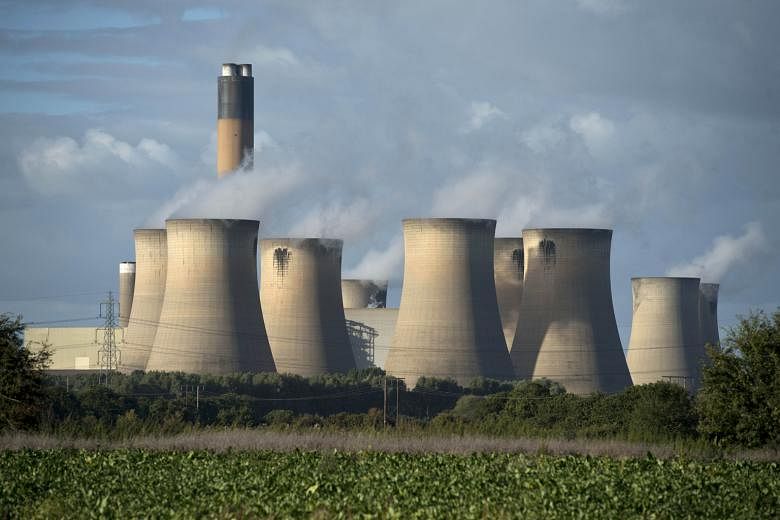WASHINGTON • Members of the Organisation for Economic Cooperation and Development (OECD) have struck a historic agreement to scale back public financing for coal-fired power plants, among the largest sources of emissions blamed for rising global temperatures.
The move came as the United Kingdom revealed plans to phase out coal-fired power plants in favour of gas and nuclear facilities.
Under Tuesday's OECD agreement, the world's richest economies will restrict subsidies that helped companies export technology to build coal-fired power plants.
The policy would cut off financing for 85 per cent of coal projects going forward, according to a senior US administration official.
Major lenders including the US Import-Export Bank, the World Bank and the European Investment Bank have already cut support for coal projects. The new agreement among the 34 OECD nations means countries including Japan and South Korea will for the first time restrict their funding as well.
The agreement is an international environmental victory for US President Barack Obama, whose domestic climate policies remain under attack.
The Republican-led US Senate voted on Tuesday to block new rules on power-plant pollution, saying they would be too costly.
The Obama administration has sought the international financing change for years but faced opposition from Japan, which opposed reducing subsidies benefiting domestic technology exporters. The breakthrough came earlier this year when the two countries agreed on a deal to allow some financing to continue.
According to an analysis by the World Resources Institute in the United States, 1,200 coal-fired plants have been proposed for construction across the globe. More than three-quarters are in India and China.
The new policy, which will take effect in a year, would provide subsidies only for so-called "ultra-supercritical" coal-fired power plants - those built to the most stringent environmental standards.
The deal comes after negotiators from South Korea and Australia were able to secure an exception allowing construction of small coal plants in developing countries that do not meet the most stringent environmental standards.
The agreement was followed yesterday by revelations that the United Kingdom will wind down coal-fired power plants, with plans to replace them with gas and nuclear stations.
The British plan was indicated in pre-released parts of a speech by British Energy and Climate Change Secretary Amber Rudd .
"It cannot be satisfactory for an advanced economy like the UK to be relying on polluting, carbon-intensive 50-year-old coal-fired power stations," the speech said.
"Gas is central to our energy-secure future, " the speech said, although environmentalists were quick to warn that while gas is less polluting than coal, burning gas still releases significant amounts of carbon dioxide. They want investment in renewable energy sources such as wind or solar power instead.
Both announcements come two weeks before global climate negotiations in Paris that may culminate in the first agreement committing all countries to rein in carbon pollution from coal and other sources.
BLOOMBERG, AGENCE FRANCE-PRESSE

